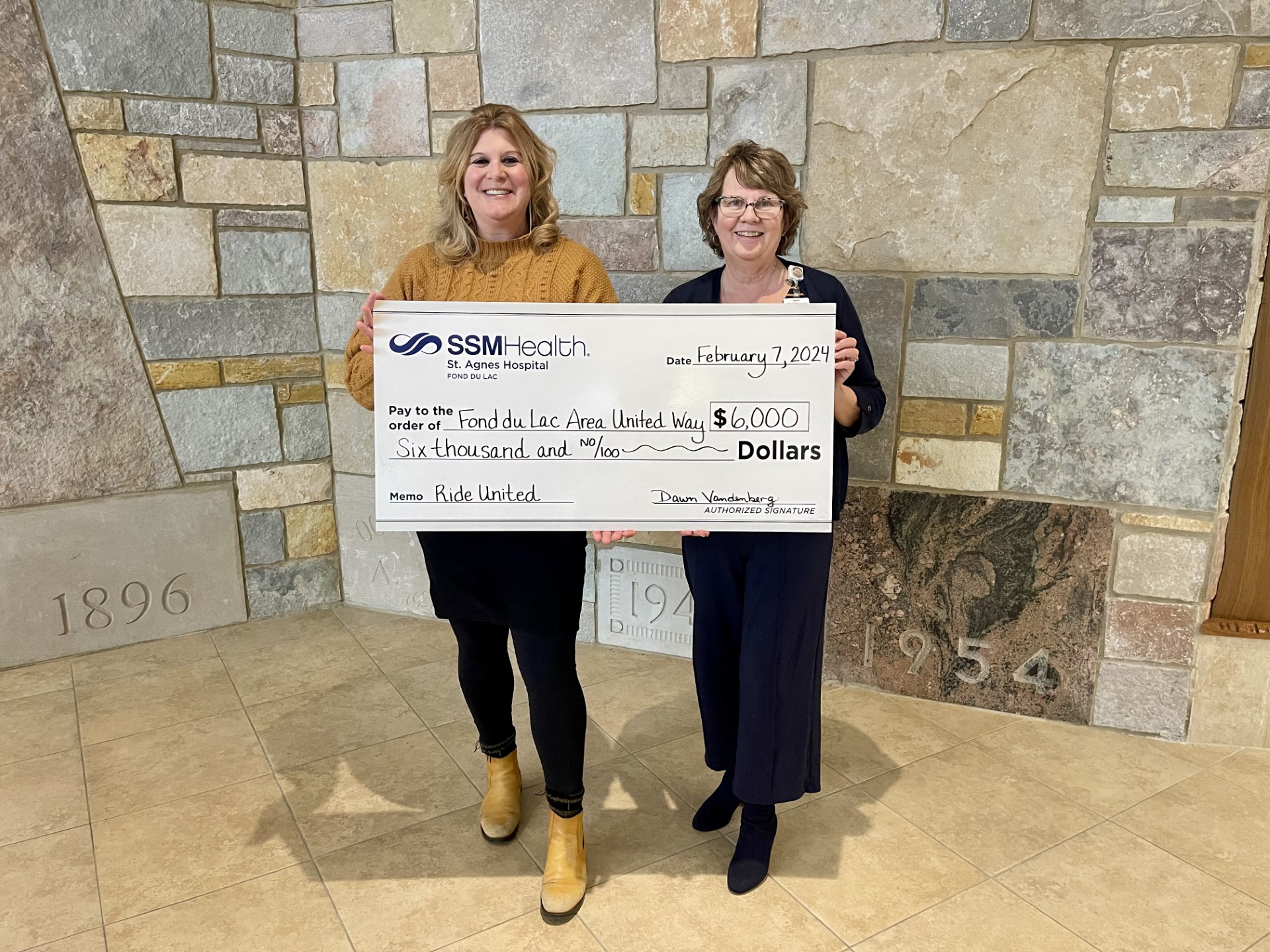Local News
SSM Health Greater Fond du Lac supporting Fond du Lac County United Way program

SSM Health Greater Fond du Lac is giving $6,000 to the Fond du Lac County United Way to help support its Ride United program.
Ride United was established in 2018 to support United Ways and 211s in reducing transportation barriers to help people in need across the United States. It can help individuals secure transportation to a medical, dental, or mental health appointment, a job interview, school appointment, grocery store or to the pharmacy.
“This vital service recognizes the importance of providing transportation options to those who need to help pay bills, feed their families, and more,” according to Amber Kilawee, Fond du Lac County United Way executive director. “It should be as easy as possible for individuals to get food and essential items regardless of their circumstances. While we know that delivering essentials to those in need is not only life-changing, it can change the way we help our neighbors. Everyone should be able to get where they need to go, safely and reliably.”
Each year, 3.6 million people in the United States do not obtain medical care due to transportation issues, according to the American Hospital Association.
“Because transportation touches many aspects of a person’s life, adequate and reliable transportation services are fundamental to healthy communities,” says Jo Pasiuk, MD, SSM Health Greater Fond du Lac Ambulatory Care/Medical Informatics medical director. “Transportation issues can affect a person’s access to health care services. These issues may result in missed or delayed health care appointments, increased health expenditures and overall poorer health outcomes.
“Transportation barriers can be barriers to wellness,” Dr. Pasiuk adds. “Developing affordable and appropriate transportation options can help boost health.”
For more information about Ride United, individuals can call 211.
SSM Health Greater Fond du Lac’s community benefit ministry totaled more than $400,000 across the communities it serves. This investment helps ensure access to health care for patients who are uninsured or underinsured, train the next generation of health professionals to care for those in need, and fund programs to address the most pressing health needs of our communities.


